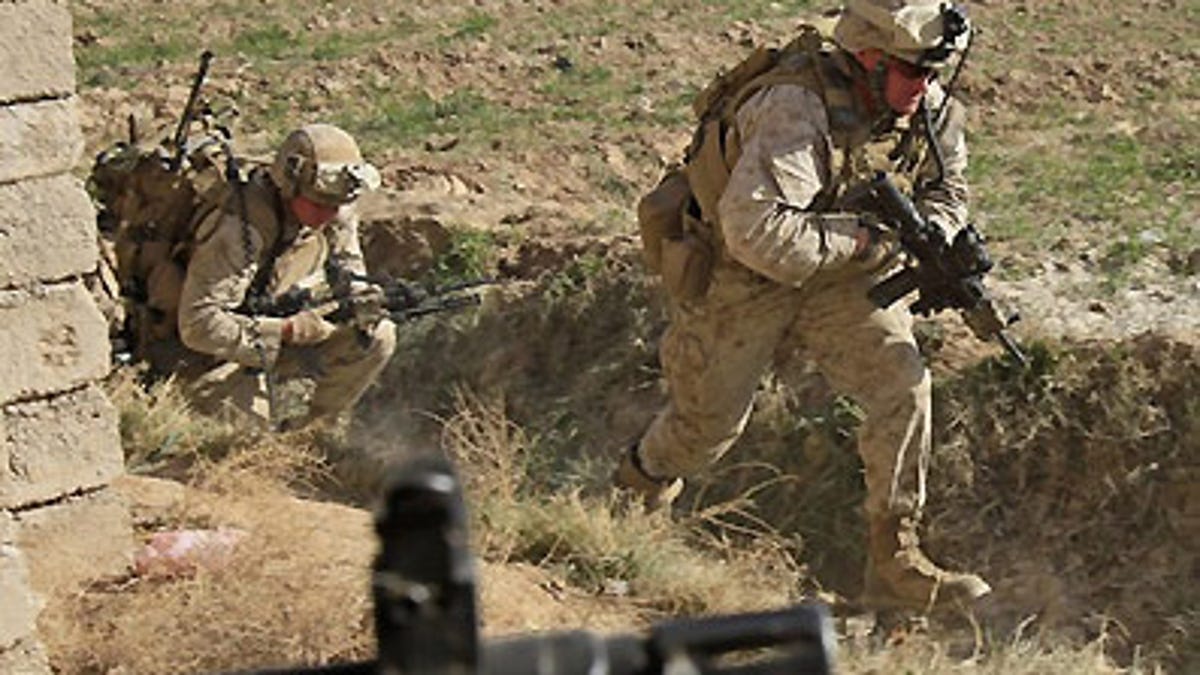
Reuters
Who says you can’t teach an old, well, older dog new tricks? The U.S. military seems to have mastered a few, or at least learned a few lessons from previous encounters in Afghanistan and Iraq. So, too, have the Taliban, but so far, it seems to be doing them little good.
In five days of fighting, the Marines are avoiding earlier mistakes and making impressive advances. The consensus among some of my military friends and sources is that the Marjah offensive has been meticulously planned, starting with the decision to broadcast the news that the U.S. military was coming.
“That scared a lot of rats out of the nest,” said Tim Connors, a security consultant and a Civil Affairs officer in the Army Reserve who teaches soldiers and civilians how to negotiate in Afghanistan. Connors sat down with me earlier today to discuss the offensive that he has followed closely. Giving the Taliban advance notice of the campaign was risky, in that it gave the enemy time to implant IED’s to greet American forces, he said. But it also made direct combat in this urban area less likely, and hence, has resulted in fewer unintended casualties. That was a key lesson of the battle for Fallujah in Iraq.
“We’re now seeing pictures of Marines with metal detectors,” said Connors. And while Taliban snipers are targeting them, American casualties have been relatively low. Moreover, he added, many Afghans are helping the Marines find IED's -- a very good sign, indeed.
A second “lesson learned” is the need to get out in front of the story. When an American rocket recently hit a house near Marjah, killing several civilians, the U.S. military quickly admitted its error and adjusted its “rules of engagement” to reduce the likelihood of a repeat performance. Earlier in the Afghan war, the U.S. military seemed reluctant to admit mistakes, a fact of life in war, and particularly in such asymmetric encounters. But quickly admitting error and offering immediate compensation has helped defeat the enemy’s “Information Operations,” says Connors. The Taliban have been unable to claim credibly that Americans are killing civilians indiscriminately or indifferently.
Third, the Marines seem to be well versed in Afghan culture, which is helping them win over Marjah residents. When the Americans killed the civilians in the rocket attack, for instance, the Marine battalion commander called in an Osprey to airlift out the dead so that they could be buried at Lashkar Gah, some 17 miles away. Burying one’s dead properly and promptly is hugely important to Afghans.
Fourth, General Stanley McChrystal’s emphasis on cooperation and coordination with Afghan forces also seems to be paying off. For the first time, says Connors, “we are synched well with Afghan forces and with President Karzai's government.” So far, at least, Afghan and U.S. forces seem to be working in tandem on the “clear” phase of the “clear, hold, and build” strategy. Civil government resources are already arriving in the secure northern areas of the city.
According to John Nagl, the retired Army officer and counter-insurgency expert, writing in today’s Financial Times, much will now depend on how effectively McChrystal’s “government in a box” performs. And this requires, in turn, ensuring that the imported civil resources do not try to supplant local tribal structures, but provide reconstruction and government services to an area that has never had them.
“Government must be perceived to be competent and uncorrupt,” Connors agrees. “We do not have to fix every broken window, but we have to fix enough of them quickly and properly.”
Nagl and Connors agree that much will depend on keeping an Afghan face on the entire effort. That means being willing to adjust plans defer to local elders.
Ultimately, however, success will depend on a political deal. The United States cannot protect Afghans and provide aid forever. Obama’s explicit timetable for withdrawal of the surge forces ensures that. So one can only hope the Taliban in Pakistan are watching the Marjah offensive and drawing their own conclusions from its current success. If they are, a deal with the Karzai government may not seem quite so repugnant.
Judith Miller is a writer, Manhattan Institute Scholar and Fox News contributor.
Fox Forum is now on Twitter. Follow us @fxnopinion.
